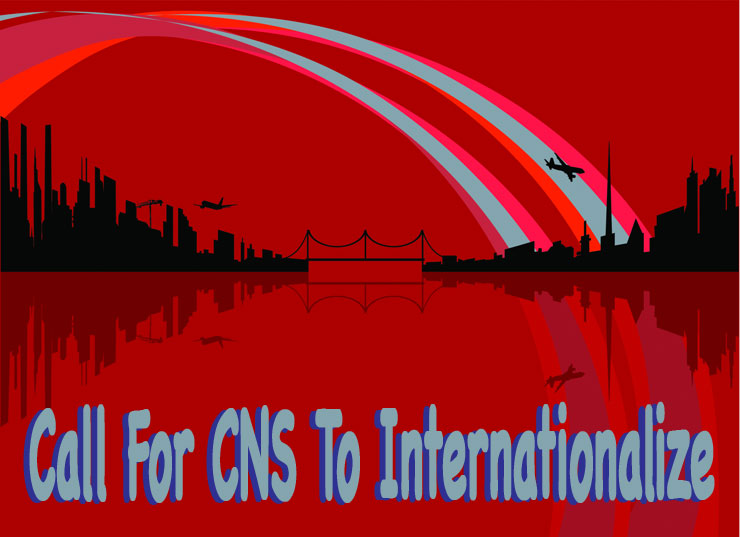
Well, the genie is out of the bottle –
Dr. Otto stepped on the toothpaste tube at this year’s CNS, and
in its wake there has been encouraging feedback from our readers, Dr.
Otto himself, Oliver Evans, Angelo Pusateri, Guenter Rohrmann, Isaac Nijankin,
and Buz Whalen, just to name a few. Wait – we almost forgot IATA;
they responded too, except that it has been by means of a deafening silence.
From an organization not exactly known for being press reticent, that
is rather strange.
Having gotten the ball rolling, it’s
time to attempt to summarize, albeit prematurely: clearly IATA is not
and has not been the focal point here. The discussion is about airline
cargo and freight forwarder representatives exploring new ways of cooperation
that can best serve their common needs and interests, ways that will fall
outside the box, leapfrogging the collective baggage accumulated over
the past 25 years.
I cannot peek into Dr. Otto’s mind
to even try to interpret what he has been thinking; therefore, it’s
best to stick to what he said this past May in his keynote speech –
to paraphrase – ‘a joint airline/forwarder formulation of
industry concerns in political forums is essential.’ He saw CNS
well positioned in such a role and suggested the CNS unique model extended
to other countries.
We can all read into this as much or as
little as we want, colored by everyone’s point of view, background,
priorities and experience. What I find compelling is an apparent convergence
of issues bubbling up to the surface at the same time. Direct airline
cargo and forwarders’ representation, minus the meddlesome and self-serving
services and hijacking of the agenda by organizations such as IATA, is
clearly an objective. An open forum for discussion is what CNS used to
provide and that, at least on the surface, is all Mr. Evans expects -
networking. That is a very different take.
Some perspective may be in order –
CNS was founded in 1985 following the 1984 revocation of antitrust immunity
for IATA in the United States. What that meant at the time was that matters
governed by IATA agency resolutions were illegal from that point on. The
intention was for CNS to be operated at arms’ length from IATA.
This included the provision of services to airlines and forwarders, which
were available elsewhere within the agency, in particular the CASS framework.
A few other things differentiated CNS – it worked with non-IATA
airlines as well as with non-IATA accredited agents.
What has not been news were the persistent
encroachment attempts by IATA over time. Breaking off CNS and taking it
global has some history and depending on who tells the story, allegedly
the forwarders would have gone for it but the airlines were reluctant.
Trying to look at the 2010 CNS through the
1985 “arms’ length” from IATA construct, one can only
conclude the DOJ antitrust folks must have been way too busy chasing fuel
surcharge infractions of late. For example, under “Services”
CNS lists:
• CASS
USA
• Cargo2000
• E-freight
• CASS
USA Business Intelligence
That is not even a thinly veiled page taken
out of the IATA book; it is the IATA agenda writ large. CASS and e-freight
have been driven by conference resolutions and as such, verboten in the
USA since 1985. Contrary to its inception,
airlines, forwarders and GHA are now represented only on the CNS advisory
board, with the Board of Directors consisting exclusively of IATA executives,
essentially co-opted. Slowly, slowly catchy monkey.
Yet at least the agency agreements are between
airlines and forwarders in the US; the forwarder community elsewhere has
recognized the need for a new relationship, one that is not governed by
IATA dictate. With the real value of accreditation being questioned by
forwarders, the search for an effective representative body has thus arisen
independently in both the carrier and forwarder executive minds and it
is being expressed openly.
Before alternatives can be seriously considered, one would indeed be well
served to determine the exact objectives and results carriers and forwarders
wish to achieve. If the past is any indication of the future, the debate
will not be easy and certainly not short. It really all depends on expectations,
and there is hope those will be expressed clearly and mutually agreed
upon.
The settlement mechanism could be provided
by a number of global banks such as Citicorp and the cost negotiated.
As national and regional security regimes
are being vigorously enforced in the U.S., Canada, Europe and elsewhere,
the new denomination is independently validated “agent and accredited
shipper.”
This year, there are two milestone events,
which may shed some light on a future direction – the TIACA-hosted
ACF in Amsterdam in early November and the FIATA World Congress in Bangkok
a month earlier.
Other than starting from scratch, some of
the options that have been kicked around are variations on a theme:
• A
greenfield project
• A
“globalized” CNS
• TIACA
• An
empowered IFCC (IATA/FIATA consultative council)
• IATA
sticking to its only mandate, which is to represent airlines or a radical
governance change that would allow forwarders, GHA, GSA to vote and thus
truly represent the air cargo supply chain.
Tournament brackets are often seen in sports;
send us your best guess for which of the five options will come out on
top – and which you would most like to see on top.
Ted Braun
Reprinted from Air Cargo News 35th Annoiversary Issue Part
I. For
More Click Here. |




